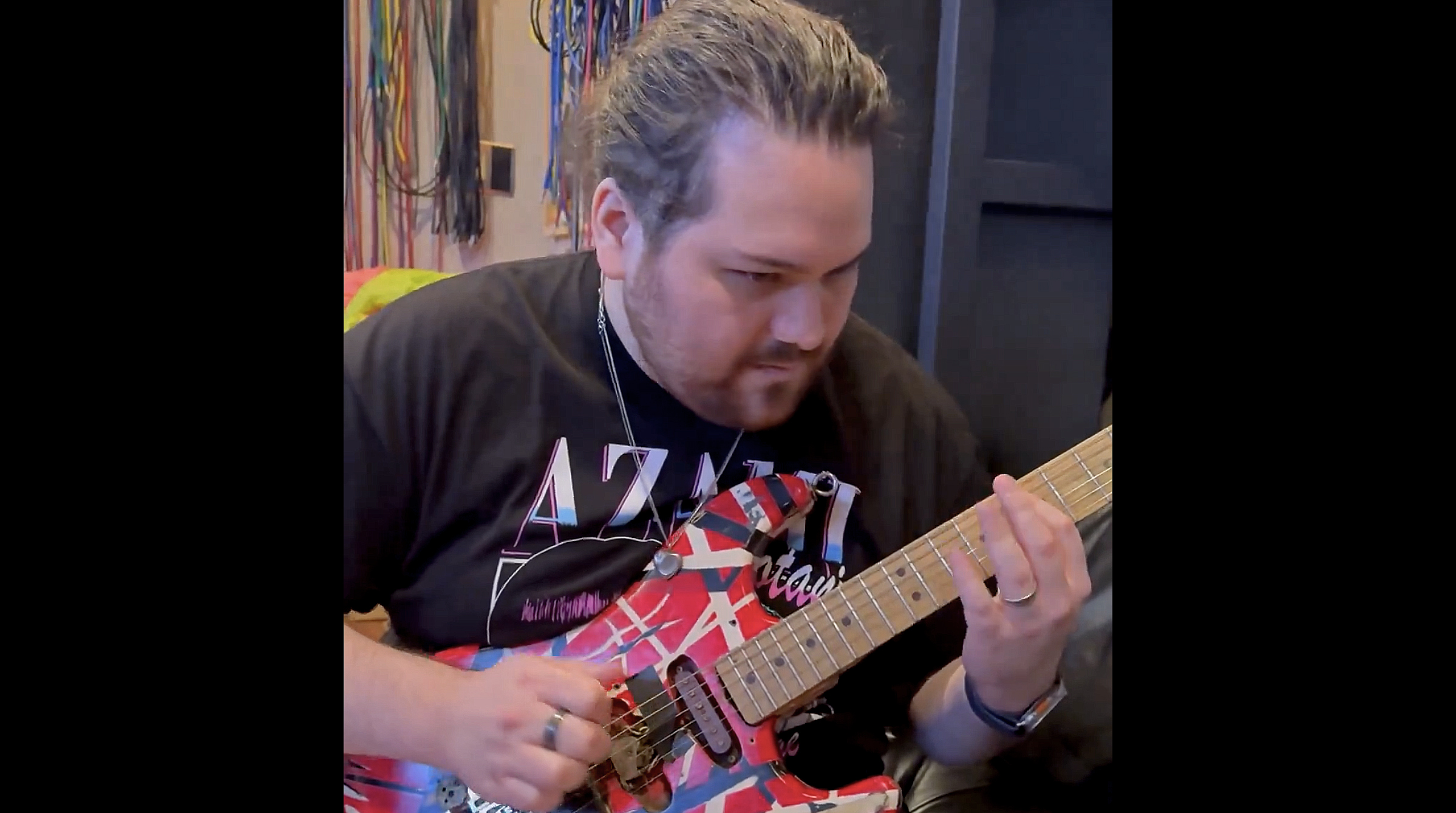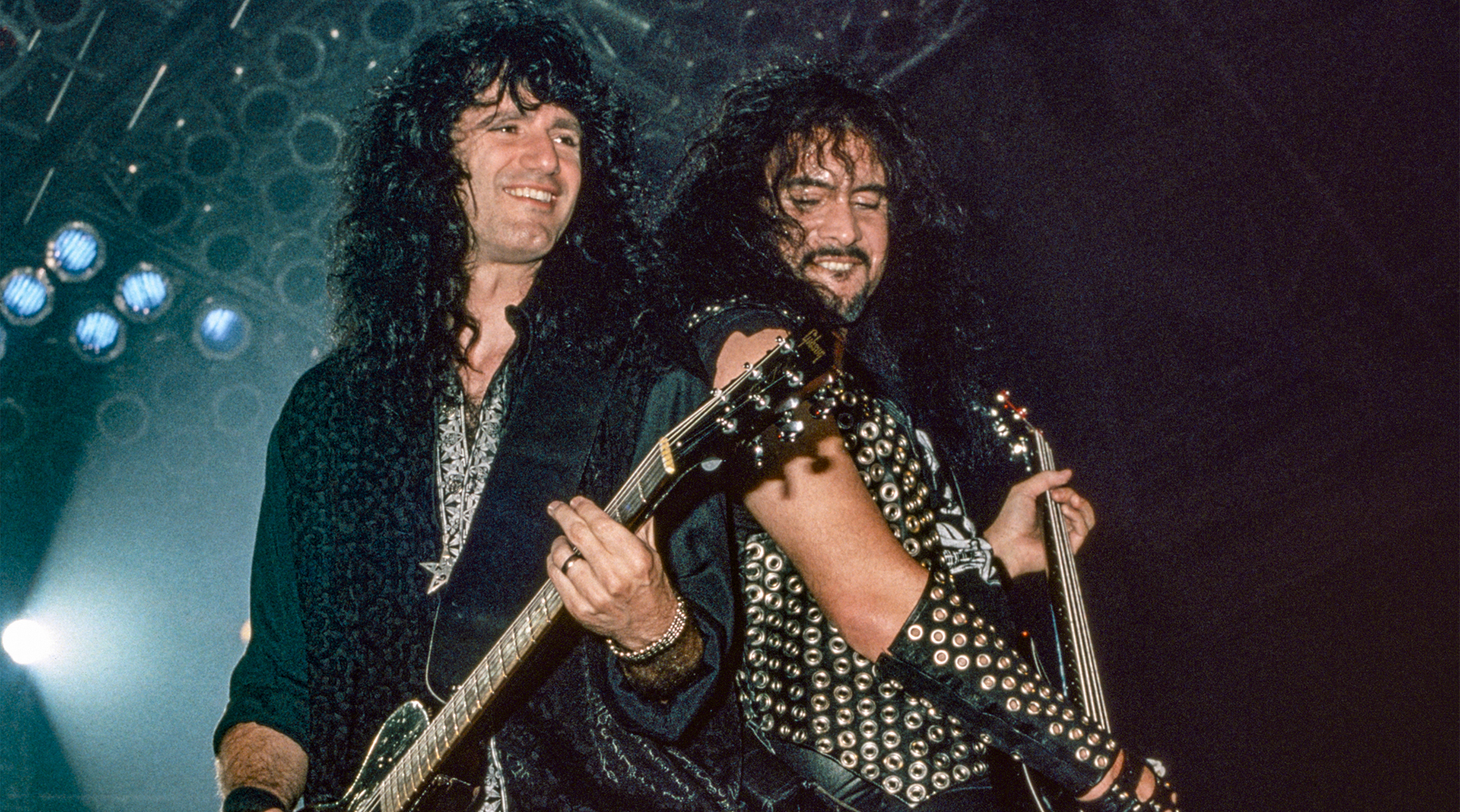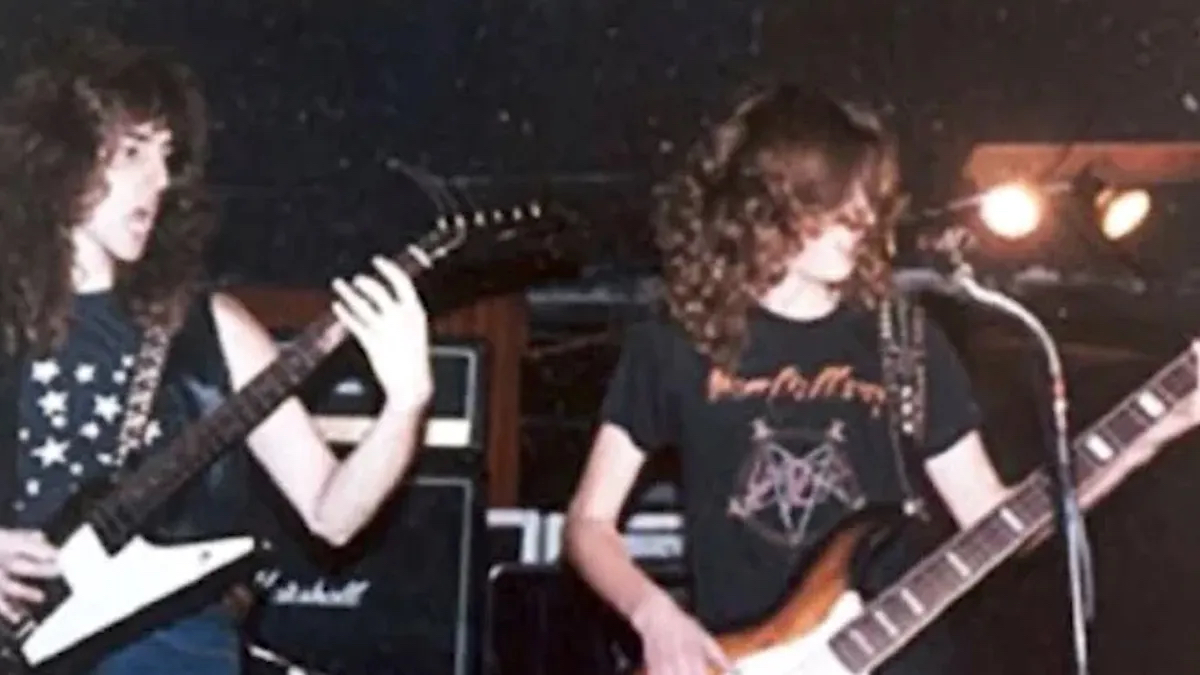"Tony Levin came in two notes early or late, and the whole thing fell to bits." Robert Fripp invented a tuning he couldn't play and polyrhythms that confused his band. The result was King Crimson's most difficult songs
Jakko Jakszyk says Fripp's intricate songs could became “a complete car crash” if anyone slipped up

Jakko Jakszyk has singled out the two King Crimson songs he found most difficult to play, and how songs would become “a complete car crash” if anyone slipped up.
The guitarist was asked by Classic Album Review to name the hardest King Crimson tracks to play.
As he explains, in live performance he found himself forced to play Fripp’s parts on the cut "Larks' Tongues in Aspic (Part One)" because Fripp himself couldn't pull it off. The reason? Fripp's new standard tuning.
“The trouble is, in the '80s Robert devised this new tuning, which he calls new standard tuning," Jakszyk explains. "And that meant he couldn't play some of that stuff.
"For instance, those fast-picked lines — a root, fifth, and flattened fifth — you're three or four frets away. But in new standard tuning, they're further away, and he couldn't reach.”
Fripp's new standard tuning sees strings approximating an all-fifths tuning — C2-G2-D3-A3-E4-G4 — similar to tunings for violin, mandolin and cello,. While the guitarist found it offered new possibilities for the instrument, it came with new challenges as well, particularly where "Larks' Tongues" was concerned.
“One, it's technically difficult," Jakszyk says of the cut. "You're playing these fast crosspicked lines. I'm playing Robert's part.
Get The Pick Newsletter
All the latest guitar news, interviews, lessons, reviews, deals and more, direct to your inbox!
“And two, I had to play those parts as I stood next to Robert Fripp!”
To make matters worse, the song is built on difficult polyrhythms. Indeed, Fripp and King Crimson were early advocates for polyrhythms in rock music, a mantle later taken up by Meshuggah and the modern djent movement. When the number crunching gets as precise as it does on "Larks' Tongues," mistakes can be perilous.
"I think I'm playing in alternating bars of five and six, and everyone else is playing in seven," Jakszysk says. "I have to come in on beat four on their second bar of seven, and then it resolves.”
“The first few times, I thought, 'I have no idea if I've played this right,' right up until the moment it goes 'bang!' ” he says . “That was always a challenge."
No less challenging for its rhythmic intricacies was the track "The ConstruKtion of Light," from the 2000 album of the same name.
“We were playing in New Jersey," Jakszyk says. "Half the band is in one time signature and the other half is in another.
“And then Tony Levin came in two notes early or late and the whole thing fell to bits. We didn't know what was going on. Tony knew he'd screwed up and he's kind of improvised his way out of it. He played a phrase and Robert and I then knew where we were."
Even so, Jakszyk says the performance "was a complete car crash.”
Undoubtedly, guitarist Adrian Belew can sympathize with Jakszyk. He recently admitted he struggled to lock into Robert Fripp’s playing style when he joined the band in 1981.
“Robert told me I don’t hold my pick correctly,” he remembers. “Which is true. I never concentrated on that. I’ve never really tried to be a fast-picking guitar player.”
He admits he was more concerned with making interesting, un-guitar-like noises from his instrument instead. That led to him working with Ken Parker and Larry Fishman on a signature Parker Fly guitar packed with MIDI compatibility and synth features.
Even the virtuoso Steve Vai has found Fripp's picking style to be “relentless.” Vai certainly would know: He's currently on tour with Belew, Levin and Tool drummer Danny Carey, peforming together as Beat, a band formed with Fripp’s blessing. to perform King Crimson’s trio of ‘80s albums live
A freelance writer with a penchant for music that gets weird, Phil is a regular contributor to Prog, Guitar World, and Total Guitar magazines and is especially keen on shining a light on unknown artists. Outside of the journalism realm, you can find him writing angular riffs in progressive metal band, Prognosis, in which he slings an 8-string Strandberg Boden Original, churning that low string through a variety of tunings. He's also a published author and is currently penning his debut novel which chucks fantasy, mythology and humanity into a great big melting pot.
"They were going for shock value, like, ‘There’s this whole new world of guitar...’” Steve Stevens on introducing the guitar synthesizer to America and shaping sounds on Billy Idol’s new hit album, ‘Dream Into It’
“There was no spare, and Edward didn't have another amp. He said, 'You gotta cover me!'" Eddie Van Halen's former guitar tech recalls the virtuoso's disastrous guitar battle before a packed NAMM show crowd













